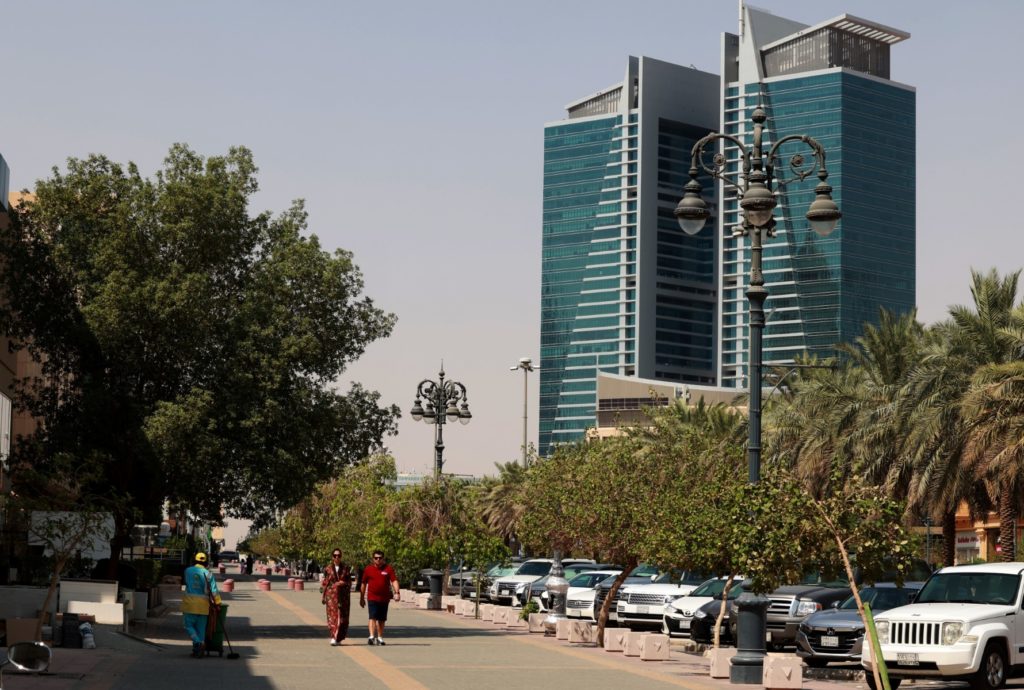Dubai – Middle Eastern and North African economies are headed for a slowdown this year, the International Monetary Fund said Wednesday, warning impoverished countries including conflict-hit Sudan will continue to suffer high inflation. Pictured above, Riyadh, Saudi Arabia.
Growth will hit a “soft patch”, down from last year’s 5.3 percent to 3.1 percent in 2023, the IMF said in its regular regional outlook.
“The decline in growth is an acceptable result in the context of addressing the most difficult economic problem that we suffer from in a large number of countries in the world” — inflation, said Jihad Azour, the IMF’s Middle East and Central Asia director.
The report covers 32 countries and territories from the wealthy, resource-rich Gulf to North Africa and war-torn Yemen as well as Central Asia and Pakistan.
It said low-income countries in those regions would recover from last year’s contraction of 0.6 percent to modest growth of 1.3 percent, while inflation would ease from 83 percent to a still-high 46 percent.
However, Azour said the drop “is not sufficient compared to the needs of these countries”, which include Sudan, Yemen, Mauritania, Somalia and Djibouti.
The economic impact of fighting in Sudan, which broke out last month between rival generals and has paralysed the country, is hard to assess, he told AFP.
“It is difficult to predict, especially since this conflict erupted a short time ago, and it is not clear how it will develop.”
Sudan’s long-term problems and “additional burdens” imposed by the conflict make it “difficult to maintain a degree of economic stability given the already weak economic structure”, Azour said.
“What we can see so far is that there’s an additional toll on neighbouring countries in terms of refugees, and there are additional risks and uncertainties also on other countries,” the IMF official later told journalists at a news conference.
Headline inflation in the regions covered by the report would remain unchanged at 14.8 percent, while real GDP growth for oil-exporting countries would slow from last year’s 5.7 percent to 3.1 percent, the IMF said, attributing the decrease to a cut in crude production.
The OPEC+ cartel slashed production by two million barrels per day in October. Major oil powers announced a further cut of one million barrels per day last month.
“The extension of the OPEC+ agreement to reduce oil production had an impact on the oil-exporting countries,” Azour said.
He also said closer diplomatic ties across the region, including a March agreement by heavyweight rivals Saudi Arabia and Iran to resume ties, lower “tension” and were “a good thing for the economy”.
“All breakthroughs are positive, as they reduce risks on the one hand, and open new horizons for economic movement and investment on the other hand.”
Any reproduction of this content is prohibited.




